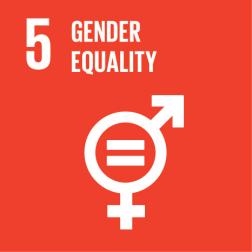General information
Title
Belgian Contribution to the "North Gaza Emergency Sewage Treatment Project" (NGEST)
ID
XM-DAC-2-10-3000756
CRS ID
NGEST-P074595- consulQCBS-02-04
Start date
End date
Activity status
Completion
Budget
€6.000.000
Actor
Worldbank Group: International Bank for Reconstruction and Development - IBRD - PRT
Country
PALESTINE
Sector
Water supply and sanitation - Large systems
Policy markers
Gender 1
Climate: Mitigation 1
Climate: Adaptation 1
Environment 1
Aid type
Project-type interventions
Priority partner country
Yes
Fragile state
Yes
Least developed country
No
Budgetline
54 11 545243 Delegated cooperation (ex Other forms of governm. co-op.)
Finance type
GRANT
Tied status
No
Flow type
ODA
SDGs
Body
General
The "North Gaza Emergency Sewage Treatment Project" (NGEST) is an urgent infrastructure project in the Gaza Strip. The Project will improve the health situation and create better environment for more than 250.000 Palestinians living in the Northern governate of the Gaza Strip. The location of the plant will be in Beit Lahia.
The NGEST Project began in 2004 with the following objectives:
1. Mitigate the immediate health and environmental safety threats to the communities surrounding the effluent lake at the Beit Lahia Wastewater Treatment Plant, and;
2. Provide a satisfactory long-term solution to the treatment of wastewater for the Northern Governorate of Gaza.
The project has been implemented in two parts. Part A was completed in 2010 and has largely achieved the project’s first objective. The effluent lake at Beit Lahia has been drained, wastewater is now pumped to infiltration basins at a new site, and environmental remediation of the former lake site is underway.
Part B, aimed at achieving the project’s second objective, is constructing a new wastewater treatment plant for the Northern Governorate of Gaza.
A second component is aimed at recovering and reusing the treated effluent from the new wastewater treatment plant to provide sustained protection of Gaza’s groundwater resources. It will recover the treated, infiltrated effluent through a field of wells surrounding the infiltration ponds for reuse in irrigated agriculture.
The project is jointly financed by AFD, Belgium, The European Community, Sida, and the World Bank.
Results
Fase I : Réduire les menaces environnementales et sanitaires immédiates pesant sur les communautés entourant le lac effluent de la station d'épuration construite en 1976 à Beit Lahia (nord de la bande de Gaza) et à fournir une solution à long terme pour le traitement des eaux usées, par la mise en place d'une nouvelle station d'épuration au nord de la bande de Gaza.
Fase II :
A. mitigatie van gezondheids- en milieurisico's voor de gemeenschappen die rond het onbehandelde afvalwaterbekken van de Beit Lahia waterzuiveringsinstallatie leven.
B. het voorzien van een langetermijn oplossing voor de behandeling van afvalwater in Noord Gaza





